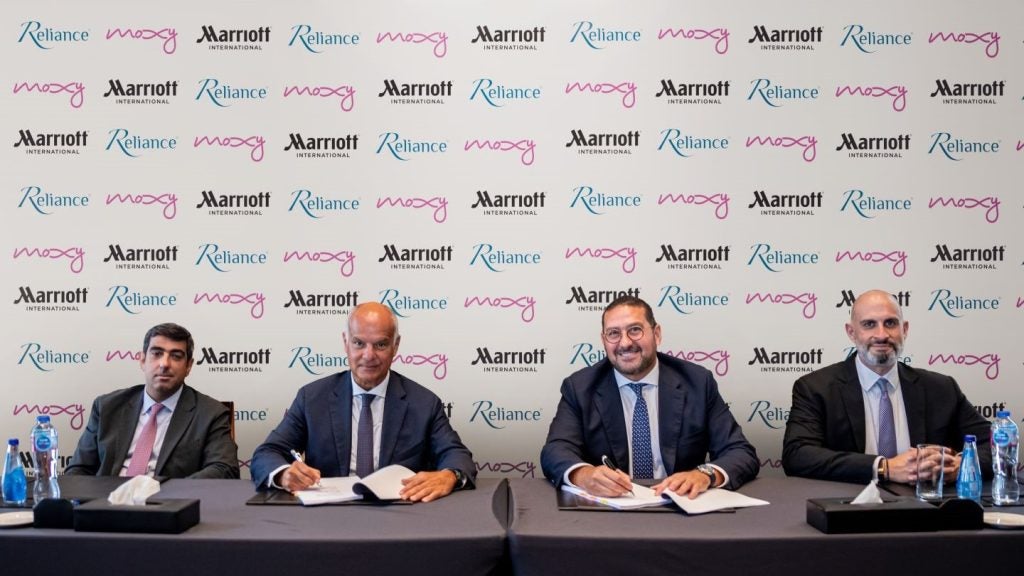
The guest experience is about to get hyper-personal. For hotels, it’s do or die.
Hotels, both grand and boutique, have long been evolving their guest experiences by focusing on personalized preferences, from allowing guests to select their own room color schemes to “pillow menus” with as many as 75 choices. We also know that global travelers are seeking more personalised experiences, so how are hotels going to meet that demand?
With the advent of artificial intelligence in the travel and hospitality sectors, we’re going to see a new level of personalisation, one where hotels automatically know the most granular of guest preferences and have the operational agility to deliver those experiences. This is hyper-personalisation, and I think it’s about to shape the guest experience and the future of hospitality.
AI allows hotels to advance connections with guests at scale
In order for hotels to deliver hyper-personalized guest experiences, they need to start with their data. According to estimates from McKinsey Digital, Organisations that effectively integrate digital and analytics, including AI, across their operations could experience an earnings boost between 15 to 25%.
This was certainly true for Hyatt, which used personalization to boost their coffers by $40 million in just six months. The hotel giant partnered with AWS to use customer data to suggest specific hotels that matched their interests and sold add-ons they might enjoy, such as spa treatments.
AI is worthless if it isn’t being fed good data, but most hotels are dealing with patchy, fragmented information scattered across various segments.
How well do you really know your competitors?
Access the most comprehensive Company Profiles on the market, powered by GlobalData. Save hours of research. Gain competitive edge.

Thank you!
Your download email will arrive shortly
Not ready to buy yet? Download a free sample
We are confident about the unique quality of our Company Profiles. However, we want you to make the most beneficial decision for your business, so we offer a free sample that you can download by submitting the below form
By GlobalDataWyndham Hotels & Resorts also overhauled its booking systems to make data transfer more efficient. This overhaul allowed Wyndham to access guest insights faster and more accurately, and reduce an almost three-day data transfer process to just five minutes.
The swifter hotels can access and analyse guest data, the more rapidly they can deliver exceptional experiences that ensure guests return time and again. A report from McKinsey and Skift highlighted one travel company, Navan, which is using data like customer loyalty status and past booking behaviour to hyper-personalise the customer experience.
While a typical search for flights or hotels might inundate a customer with over 500 travel options, Navan offers a more streamlined approach. Customers with identical travel plans using Navan receive search results uniquely tailored to their individual profiles. According to Navan, 40 percent of customers book the very first option presented to them.
Hotels must rethink how deep guest segmentation can go
Segmentation is a tool many businesses use to group and serve different customers. Per McKinsey and Skift, hospitality giant Accor tripled the revenues of its email unit by using AI and customer data to segment guests and personalize communications.
In order for hotels to get ahead on hyper-personalisation, they need to think deeper when it comes to guest segmentation. TravelAI uses the term “the web of one” to describe a straightforward yet profound idea: recognizing every guest as a distinct entity.
As travel companies learn to leverage the data they already have, they will be able to create much smaller segments of travelers: the foodie dining in Rome, the avid surfer looking for the biggest waves in Malibu, or the spiritual explorer trekking through India. Eventually, with AI, companies will be able to shrink these segments down to the individual level – down to the ‘web of one’.
Imagine a guest on the hunt for a hotel in Washington, DC. Normally, they’d be lumped into a broad category like ‘leisure guest.’ That’s a start, but it barely scratches the surface. Let’s say our guest isn’t just any tourist; they’re a die-hard history buff, dreaming of tracing the city’s museums and monuments.
Here’s where we switch gears to hyper-personalisation. It turns out our guest doesn’t just want any room; they’re picturing a room with a stunning view of the US Capitol. They’re not looking for generic city tours; they want to immerse themselves in the history surrounding the city’s landmarks. And dining? They’re all about experiencing the charm of the city’s oldest restaurants.
The magic of hyper-personalisation is in treating our guest as a web of one. It’s about the hotel recognising these unique preferences and then quietly, almost invisibly, making it all happen. The guest gets their dream room with that perfect Capitol view, recommendations for the most engaging historical tours, and reservations at restaurants steeped in history. And the best part? All of this is arranged without the guest lifting a finger.
But it is not just about the stay itself, but it is about adapting your web or call-center experiences to start that personalisation journey from the very first touch point. That’s hyper-personalisation at its finest – where every detail is thoughtfully tailored, turning a simple stay into an unforgettable, deeply personal experience.
The industry will get to a point where such detailed personalisation becomes the norm. It might be a nice-to-have for major hotel brands today, but it’s soon going to be table stakes for every travel and hospitality business, big and small. The technology is not going away any time soon, and in fact, it is ready to unleash transformations in all facets of the hotel enterprise.
Hyper-personalisation poses numerous challenges, but the rewards are immense. Hotels must seize this future now or risk being sidelined in the next era of travel.
About the author: John Lyotier is CEO of applied AI company TravelAI.







